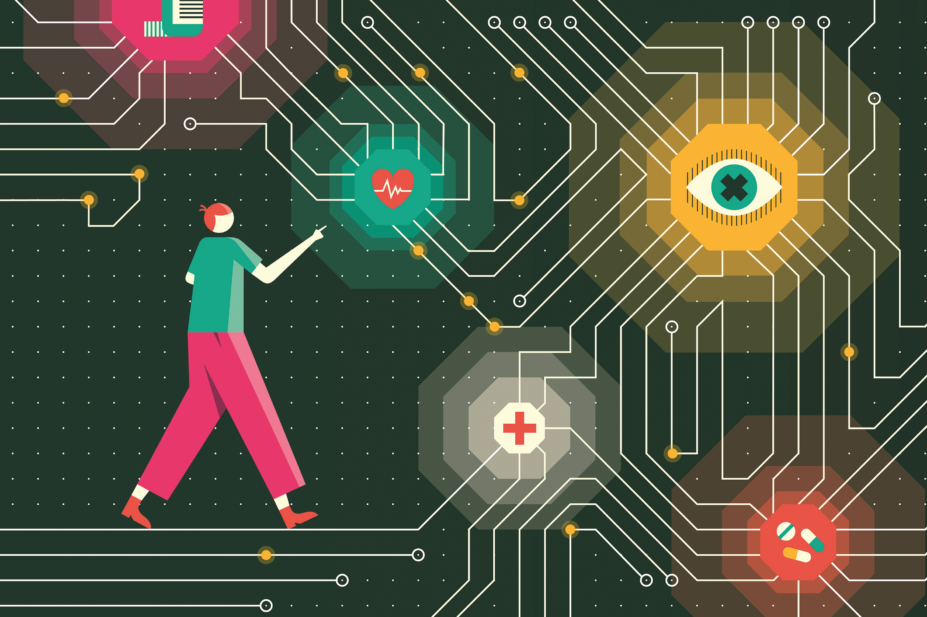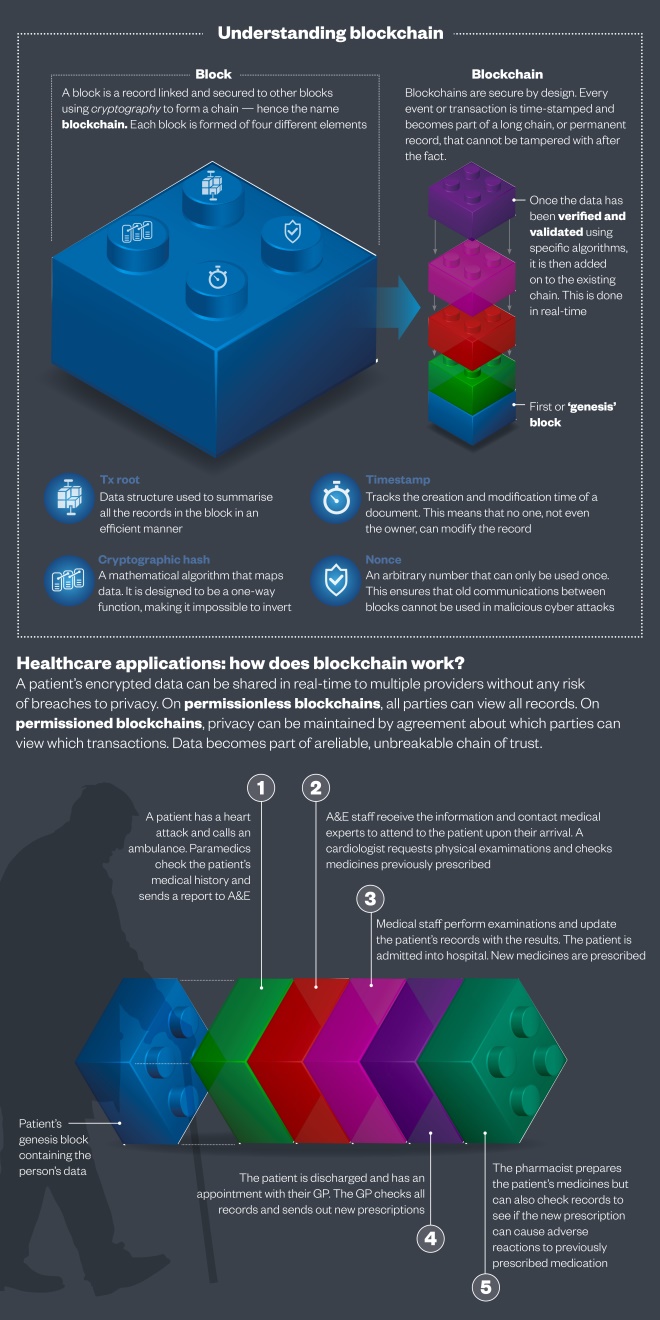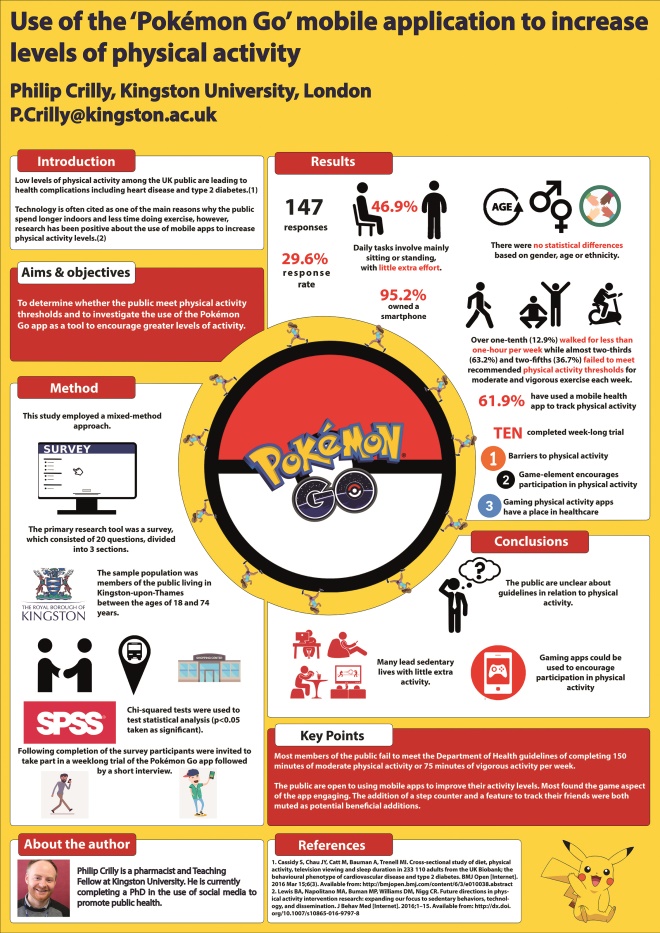
Jamie Jones / Ikon Images
Technology greatly impacts our day-to-day lives. In healthcare, technology plays an important role in improving patient safety, can save time and money and, if used effectively, address the shortage of skilled staff. Health technology certainly removes some of the more repetitive and mundane tasks in pharmacy, while also helping pharmacy professionals develop their skills in other areas, such as data analysis and provision of actionable insights to improve patient care.
Understandably, there is cynicism around whether all health technology consistently offers real value, is worth the investment and can ever replace the skills and emotional support of a human being. There is also concern over the sharing of patient data without compromising confidentiality restrictions.
However, as health technology continues to evolve at such a rapid rate and the NHS adopts increasingly innovative solutions, the pharmacy profession is under pressure to stay well informed of these advancements in order to stay relevant.
Here is a summary of the technological advancements in healthcare that may affect your pharmacy career in the near future.
Blockchain
A blockchain is a continuously growing list of linked and secured records, called blocks. It is an ideal platform for regulatory compliance because it establishes a verifiable and trusted audit trail. Pharmacies and others who have records included within the chain can be notified of non-compliant events as they happen and the technology determines who sees what information and when.

Figure 1: What is blockchain?
Source: PriceWaterhouse Coopers (PwC), CNSI, Lifehacker.com
The IBM Institute for Business Value, is the business ‘think tank’ for the technology company IBM. It surveyed 200 healthcare professionals in 16 countries to assess how they use blockchain — for example, to reduce costs, time and risk around clinical trials, regulatory compliance and medical and health records.
Heather Fraser, a pharmacist and IBM’s Institute for Business Value global lead for life sciences and healthcare, says different areas of pharmacy are moving at different speeds when it comes to adopting new technology, including blockchain. Surprisingly, healthcare is ahead of the financial sector with 16% of the respondents in IBM’s study taking a lead in commercialising blockchains at scale.

Source: Courtesy of Heather Fraser
Heather Fraser, IBM’s Institute for Business Value global lead for life sciences and healthcare, says blockchain could provide a way to store a patient’s full medical history
“Blockchain is a way to hold all data together securely, from cradle to grave,” states Fraser. Currently, some health records are held by the GP, some might be at the hospital and some may be at the pharmacy. “What if every one of your vital signs that have ever been recorded, all the medicines taken, information associated with every pharmacy and doctor’s visit, illness, operations and more could be efficiently and accurately captured?” asks Fraser, who appreciates the potential value of having access to a patient’s full medical history.
Box 1: Who invented blockchain?
Satoshi Nakamoto is the alias adopted by the unknown creator(s) of the first blockchain database, who also designed Bitcoin and created its original reference implementation. Up until December 2010, Satoshi Nakamoto had been actively involved in Bitcoin’s development.
Artificial intelligence and machine learning
Fraser has observed the pharmacy profession embracing other technologies too, including cognitive computing/artificial intelligence (AI).
She believes pharmacy can benefit from AI and machine learning as the industry has large volumes of complex data from a variety of sources. Fraser says the challenge is managing and integrating that data to facilitate better informed and timely decision making. Cognitive computing/AI can help solve these challenges by supporting new discoveries and insights in medical research and enhancing decision making in areas such as clinical trial funding, as well as helping to personalise the health experience.
The pharmaceutical industry is beginning to invest in AI, with many large pharmaceutical companies partnering with AI start-ups in 2017 in order to develop better diagnostics or biomarkers, to identify drug targets and to design new drugs.
Machine learning, a subset of AI, is enabling healthcare professionals to use different technology, such as speech recognition, to make data-led decisions around drug repositioning (the identification of alternative therapeutic indications), correlation detection and failure analysis. It can even help to predict epidemic outbreaks.
Embracing change
Fraser understands the concerns that some pharmacy professionals have around transparency, security and the robustness of analysed data. Some will point to an Information Commissioner’s Office ruling in July 2017 that the Royal Free NHS Foundation Trust failed to comply with the Data Protection Act when it provided patient details to Google DeepMind. However, most health technology, including blockchain, is permission-based when it comes to sharing data.
At the beginning of her career, Fraser worked with Boots at a time when all labels were handwritten. By the time she qualified as a pharmacist, the use of technology to print labels had started to become commonplace. Initially, there was a degree of mistrust, for example, in the preloaded phrases. However, “with any new technology it can take time to overcome perceived barriers and realise the benefits”, explains Fraser.
Ultimately, Fraser believes the industry could be bolder about embracing new technological ideas.
Opportunities for pharmacy
Previously a technophobe, Fraser now believes more individuals should look at opportunities to progress their careers within the health technology sector. Pharmacy professionals know their industry and understand the needs of the patient; so alongside “techies”, they are able to translate emerging technologies to benefit healthcare, pharmacy and ultimately, the patient.
Philip Crilly, community pharmacist and pharmacy teaching fellow at Kingston University, London, says pharmacists are by nature risk-averse, which is why they can fear new technology and often avoid it. He also understands why some pharmacists worry about losing personal contact with patients. “In fact, health technology can complement pharmacy services and actually give [pharmacists] more time with people,” says Crilly.

Source: Courtesy of Philip Crilly
Philip Crilly, community pharmacist and pharmacy teaching fellow at Kingston University, London, says health technology can complement existing pharmacy services and allow pharmacy professionals to spend more time with patients.
He believes AI and machine learning will improve and increase the speed of diagnostics around blood samples and scans, and make it easier to dispense personalised medicine dosages. He also points to the success of augmented reality technology, which is being used to develop health apps that encourage behaviour change.

Figure 2: Use of the Pokémon Go mobile app to encourage increased levels of physical activity
Source: Courtesy of Philip Crilly
For example, the Pokémon Go mobile app was a novel way to increase levels of physical activity and, in doing so, reduce the risk of type 2 diabetes. The results of a trial organised by the university discovered that the game element encouraged respondents, particularly men, to participate. Crilly presented these results in February 2018 at the Centre for Behavioural Change Conference in London.
Another example was the university’s Sugar Smart app, designed to help community pharmacists encourage people to reduce their sugar intake. The app also makes the user aware of NHS sugar guidelines and recommendations.
“Pharmacists are in a great position to encourage changes in health behaviour using technology around health campaigns. They can listen to patients and suggest digital tools that might benefit them,” explains Crilly.
Box 2: Technological advances for pharmacists to be aware of
Digital tablet tracking: The United States Food and Drug Administration has approved pills with a built-in digital tracking device. The first one was for Abilify MyCite (Otsuka Pharmaceutical Co., Ltd. and Proteus Digital Health), a form of aripiprazole, which has an embedded ingestible sensor that records when the drug is taken.
Remote monitoring using machine learning
technology: Apps are being developed that can link to equipment such as weighing machines and blood pressure monitors. The data collected can be accessed by the pharmacy and the GP.
Automated dispensing robots: This technology speeds up the dispensing process and increases prescription volumes. Using robots means pharmacists can spend less time in the dispensary and more time developing other areas of their business.
Sweatcoin: Currently around five million people use this fitness app, which links health data on a person’s smartphone to their GPS location. Rewards (Sweatcoins) are based on the number of steps someone takes and the coins can be traded for fitness gear and workout classes.
PharmacyCoin: One application for blockchain is PharmacyCoin. This is a digital currency being offered to patients by community pharmacists in the United States to support social prescribing, health and wellbeing services and to promote more personalised care. It could arrive in the UK soon.
The future
With the world of health technology moving at such incredible speed it can be tricky for pharmacists to know where to invest their time and money.
Mohammed Hussain, programme head of integrating pharmacy across care settings at NHS Digital, believes there is a huge appetite among many pharmacists to use health technology, but they may need more knowledge and can lack trust.

Source: Courtesy of Mohammed Hussain
Mohammed Hussain, programme head of Integrating Pharmacy across Care Settings at NHS Digital, says health technology is not a one-off business decision, it is about constantly updating and remaining relevant
“For example, a lot of money has been spent on websites over the years and now pharmacists are being told to invest in apps. It can be confusing, but health technology is not a one-off business decision, it is about constantly updating and remaining relevant,” he says.
Hussain agrees that blockchain is a major opportunity for pharmacy in the short and medium term to help manage stock control, and track and trace drugs. He also says AI can help NHS services such as 111 and other services by making patient interactions more digital and personalised.
“We could see triage by a machine learning algorithm before someone sees a human,” says Hussain. “There are also opportunities using AI for pharmacies to use online chat bots to offer advice and make their business and care more efficient and relevant.”
He says one reason for nervousness around health technology is a lack of training during undergraduate pharmacy teaching: “We need more education around coding, governance and cyber security to boost confidence.”
One thing is for certain, health technology is here to stay and the pharmacists who embrace it rather than ignore it will see benefits for themselves and their patients.
Box 3: Should pharmacy professionals learn to code?
Steve Jobs believed that everybody should learn to program a computer, but how relevant is it for healthcare professionals?
Mohammed Hussain, programme lead of Integrating Pharmacy across Care Settings at NHS Digital, says pharmacists should at least learn the basics, then work with developers and attend events such as ‘hackathons’ to learn programming and improve their skills.
The Code4Health initiative, supported by NHS England and NHS Digital, is helping pharmacists and other healthcare professionals learn to code.
Pharmacists are shown the basics of computer programming, such as JavaScript, CSS, python and HTML, so they can develop simple apps to improve their clinical practice and their patients’ health.
One venue running workshops is the University of Bradford, as part of its Digital Health Enterprise Zone programme. There are also several companies offering coding training to pharmacists. In London, for instance, the London App Brewery runs part-time weekend courses in app development. There are also regular coding camps run throughout the UK.


